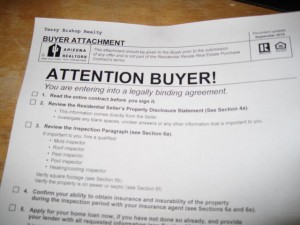Tucson Active Adult Communities Run the Gamut…
Monday, December 14th, 2015The Tucson area is home to a multitude of active adult communities which range in price and amenities available.
Some communities require that buyers be age 50 and others age 55. Some communities stipulate that the owner meet the age requirement. This means a child less than 50 or 55 cannot purchase a property for a parent who meets the age restriction.
Other communities have no restriction on who can purchase a property as long as the occupant meets the age requirement. Some developments ask for proof of age, others don’t. When purchasing a property in an active adult community, the Covenants, Codes and Restrictions (CC and R’s) will spell out the requirements.
Price points run the gamut from $60,000 to more than a million dollars. Popular manufactured home active adult communities offer lower cost options and yet have many of the bells and whistles of the more expensive communities. Most have pools and recreation centers and offer the camaraderie of like minded residents.
Active adult communities built by production builders such as Pulte and Robson sport a beginning price point of the high $100’s. Add ten to twenty percent to the base price for new home construction upgrades. When considering new home construction, use a Realtor®. Make sure you make your first visit to that community with the Realtor® since he/she can often save you money and guide you in terms of what upgrades you should consider for future resale value. You want to have representation and not be represented by the builder’s site agent who is working for the builder, not you.
Your Realtor® should check the inventory in the community to make sure you are aware of what is available. Pre owned homes will probably have landscaping completed as well as window coverings, fans, and other upgrades which make a house a home and will save you money in the long run. He/she can help you compare and contrast various communities.
Understanding your wants and desires and trying to match communities throughout the Tucson area is the function and job of your Realtor®. There are many smaller communities within town; condos, townhomes, patio homes, manufactured homes, in addition to single family homes which may meet your requirements. Not all active adult communities are golf course communities with hundreds or thousands of homes.
Think about what you want in a home, how you want to live your retirement, and tell your Realtor® who can help you translate that into reality.



